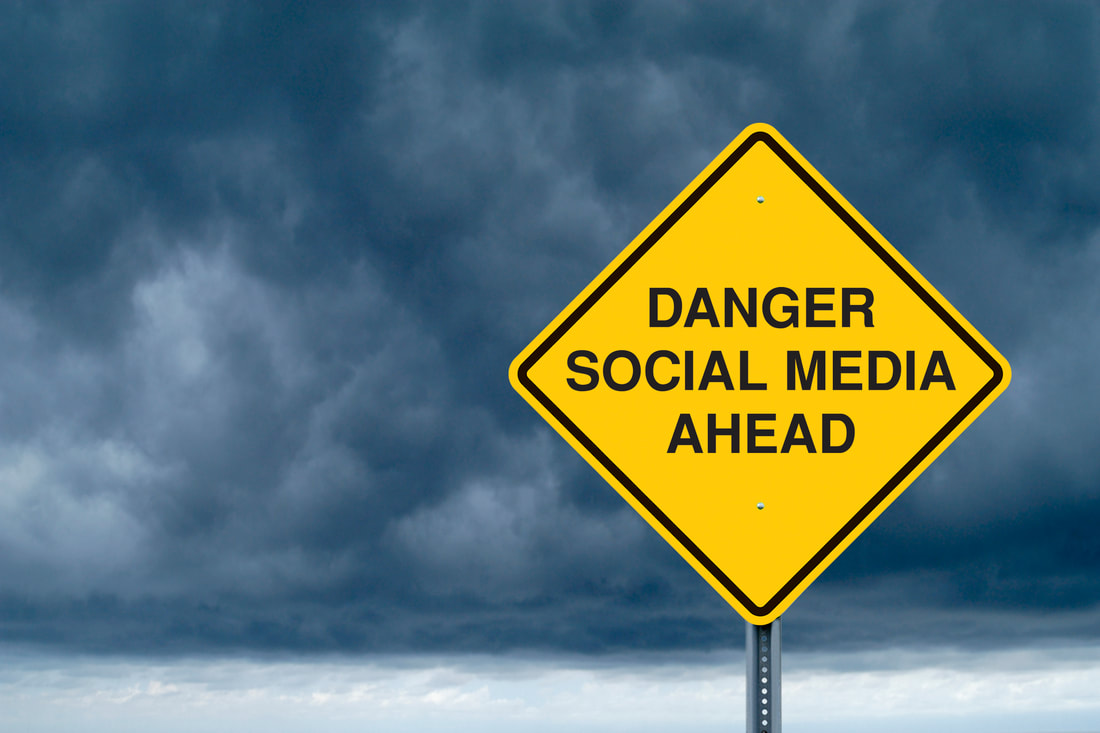|
SOCIAL MEDIA IS WEIRD. I think George Takei said it best: "Social media is like ancient Egypt, writing things on walls and worshipping cats." Followers. Likes. Selfies. Pet selfies. Food selfies. Coded emoji hieroglyphic languages. Memes. Bible verses. Bible memes. A false sense of belonging. Mob mentalities. Trolls. Celebrities. Pastors. Celebrity pastors. Condemnation. Vilification. Praise. Adulation. Profiles. Pages. Profiles that act like Pages. Distorted realities and ritualistic dependencies. I'm convinced that somewhere in the vast expanse of the cosmos — at this very moment — little green men are nestled in their cozy research laboratories studying the effects of social media on the human species. Frankly I feel sorry for those poor Martians and hope that they never have to land on our soil. I'm sure their planets are far more civilized and less confusing. Anyway, sites like Instagram, Twitter, and Facebook have basically become the modern day office water coolers or the 21st-century versions of the town square. People, friends, coworkers, and strangers from all walks of life huddle up to gossip and converse about the latest TV shows, problems at their jobs, dates that didn't go well, church activities, family drama, sermons they loved, and everything in-between. And it's not just a handful of people, mind you. No, it's a lot. Facebook alone boasts 2.8 billion active monthly users. Entire herds of human beings assemble within these digital spheres to participate in events and activities. See? Town square. Don't get me wrong. These platforms present phenomenal opportunities to form relationships with real people and to engage the community. And we should be doing that. But just like the three-dimensional world, social media can be fraught with dangers. Every time you tweet, publish, upload, post, respond, message, like, or react, you run the risk of upsetting, offending, confusing, or separating yourself out from the very people you're trying to engage or even creating a different mess altogether. This is why, particularly as a pastor, you have to tread as cautiously as possible on social media, while still coming across as real and approachable. It's a delicate balancing act that requires patience, time, and attention. It's also why some pastors have entire teams who manage their social media for them. Here are ten ways you can obliterate your reputation through social media without even realizing it: #1. Portraying yourself and/or your life as flawless.I think we can all agree that Jesus was the only perfect person to walk the Earth. If you try to come off as perfect in your posts, videos, and content, you'll just wind up being seen as inauthentic and phony. (This will damage your ministry in much larger ways than you can imagine.) Never be afraid to be real and relatable. (James 4:6; James 4:10; Proverbs 11:2) #2. Failing to monitor and manage photos, statuses, or content in which you've been tagged.When you're tagged in a photo or graphic, it gives the impression that you approve of being associated with that particular photo or graphic — even if you never authorized the individual to tag you in the first place. Do you have a friend or church member who's notorious for tagging you in inappropriate memes or photos? Do you even monitor your notifications enough to know if or when you've been tagged in something? In your privacy settings, you can manage tagging. Don't resort to unfriending or blocking someone until it's necessary. If the tagging persists, consider sending a private message to the individual politely asking him or her to stop. If you've been tagged in something inappropriate for several weeks and its just hanging out there in Facebook cyberspace without your knowledge, it can smear, tarnish, or even ruin your reputation altogether. #3. Ignoring messages and comments.Obviously you can't personally respond to everyone who writes on your Facebook wall or sends you a DM on Instagram. You would be overwhelmed. You have meetings, counseling appointments, sermon prep, family time, and countless other tasks. But the occasional interaction is critical. After all, you don't want to come off as a social media jerk. Do your best to monitor your inboxes and comments. Follow up and reply when you can. It shows that you care and that you're engaged. Treat your Facebook inbox with the same prioritization as you would treat your e-mail inbox, physical mailbox at home or church, or even the inbox on your office door. #4. Blasting another local church or fellow pastor.Don’t start theological comment wars with other ministers or churches. It’s a bad look and you’ll risk losing the respect of your own flock. If you have a problem with something a pastor said or did, send him a private message and request an in-person meeting to have a civil discussion over a cup of coffee. In other words, be a mature adult human being. Otherwise, just don’t worry about it. Every church is different. Every pastor is different. #5. Assuming the role of theology police.This one piggybacks off of number four. Don’t go around policing everyone’s spiritual posts. That’s not your job as the pastor and it makes you come off as an arrogant, annoying, pompous know-it-all. It also makes you look pretty silly and childish. If someone in your church is listening to a false teacher, have a one-on-one conversation with that individual and address it privately. Don’t post public comments on their social media profile about it. That’s simply not the place. It gives the impression you're intentionally trying to embarrass that individual. It also gives the impression that you want everyone around you to think you're some sort of theological genius, which just winds up making you look really insecure at the end of the day. #6. Insulting or degrading people.If you've got a beef with a friend, fellow staff member, or congregant, don't resort to petty name-calling, personal attacks, exclamation points, angry emojis, or overheated zingers on Facebook. It's not Christlike and you know better. Be aware: As your social media influence widens and your friend count increases, you'll probably be attacked or criticized more often. That comes with the territory. But the last thing you need to do is publicly lash out at someone who criticizes you. One of the many beauties of Facebook is that you can delete comments and block people. If you need to address the person in private, then do so discreetly and lovingly. #7. Neglecting to promote, highlight, and share your church's Page and its other digital content.I'm the son of a pastor, so I know how busy you guys stay. Most of the time, you don't even think about reposting or retweeting your own sermons or your church's events. It's just not on your mind or on your schedule. (That's what the Comms Director and Technical Assistants are for, right?) You're doing pretty good if you can check Facebook a few times a week, upload a devotional video or two, and respond to some comments here and there. But, whether your team does it for you or you do it yourself, sharing some occasional content from your church's Facebook Page is critical. It tells this generation that you actually care about the things at the very church God has called you to shepherd; the very things you seem excited about from the pulpit every week. They need to see you caring in their language. And their language is Facebook. #8. Oversharing content from your church's Page.Believe it or not, there is a danger in oversharing. Try to strike a good balance between sharing content from your church's Page (sermons, events, verses, etc.) to sharing everyday personal moments from your own life through photos, videos, etc. This goes back to the whole "being authentic" thing. You might be a minister, but you're also a human being. #9. Trying to be overly hip or relevant.Ok, pastors. I'm not talking about skinny jeans here (although that may be another issue for another day.) I'm talking about posting personal commentary on cultural or political issues or jokes about current events in the news that could wind up being seen as distasteful or offensive. You might think you're just being innocently humorous and cool, but these sort of posts usually backfire and will come full circle to haunt you in some way. Even if you didn't mean to offend, it'll happen. Use caution and basic wisdom when it comes to politics or controversial cultural issues, except when addressing them through a biblical lens in your sermon or a devotional video where it applies to the context. #10. Posting while you're mad.If you ask me, Facebook isn't just like ancient Egypt. With all due respect to George Takei, it's also sort of like the wild west — full of gunslingers, desperados, bandits, and lawlessness. If you're not careful, you can get sucked into the vortex of folks who use Facebook as a platform for shooting from hip, venting about whatever or whoever they want whenever they want. Don't be like these people. Never post when your emotions are out of control. Never post out of sheer anger, rage, or from a place of hurt or retaliation. Take a deep breath, chill out for a while, and spend some time in the Word. Your church, your coworkers, family, friends, and your reputation will all thank you. (Psalm 37:8; Proverbs 14:29; Proverbs 15:18; Ephesians 4:31; Colossians 3:8) ConclusionIn my humble opinion, the best way to avoid utterly obliterating your reputation on Facebook — or any social media platform — is to just employ some good old fashioned common sense. Don't draw a line and treat these platforms as little private worlds without rules and consequences. They can easily devastate your reality if you're not careful. Act the same way on social media as you would act in public, in church, or with your family. What Else?What am I leaving out? Are there any other social media errors, gaffes, or indiscretions you would recommend pastors avoid? Do you have advice, tips, or suggestions from your own personal experience? Leave a comment or shoot me an e-mail!
0 Comments
Leave a Reply. |
Archives
March 2024
|



 RSS Feed
RSS Feed